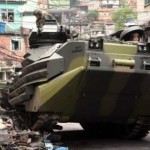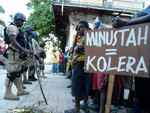Mercosur Signs Free Trade Agreement With Palestinian Authority
By Staff, MercoPress. Mercosur signed a free trade agreement with the Palestinian Authority on Tuesday Dec 20, 2011: this is the first between the Palestinian territories and a block of nations outside the Arab world.
Continue reading →




